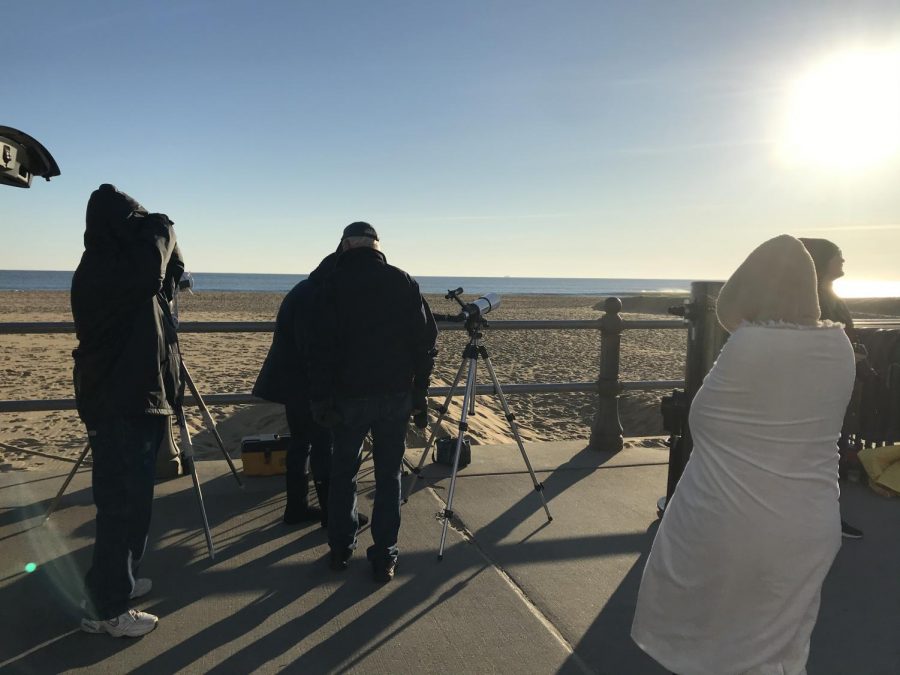Mercury transits Sun, astronomy students benefit
Back Bay Amateur Astronomers set up telescopes on the boardwalk prior to the transit on Nov. 11.
November 14, 2019
Mercury transiting the Sun provides extra credit opportunity for astronomy students.
Astronomy teacher, Michelle Bailey-Hennessey, told students if they joined the Back Bay Amateur Astronomers on the morning of Nov. 11 at the Oceanfront she would provide extra credit.
The Back Bay Amateur Astronomers, which have been a club since 1978, arrived early that morning to set up their optic-enhanced telescopes. The club had about 10 members arrive on the boardwalk between 25 and 26 streets prior to the beginning of the transit. The club needed to receive permits in order to park on the boardwalk and set up their equipment.
“You don’t need much, just a simple telescope with the most important instrument being a solar filter to see [the transit],” said Charles Dibs, a member of 20 plus years and the coordinator of the Plaza Planetarium. “It will take just over five hours for Mercury to completely cross the Sun.”
The transit began at 7:37 A.M and ended at 1:03 P.M on Monday morning.
The next Mercury transit that will be visible in Virginia Beach will not be for at least 30 years.

